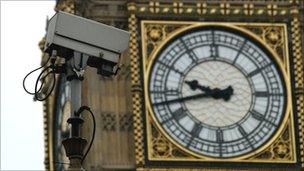Lacie Hard Drive Beeping
Tuesday, May 31st, 2016I have a Lacie single drive and it wont power on. When connected to the computer it makes a few beeping noises and then stops and doesn’t work. The light still turns on.
 The beeping noises are unfortunately errors signals coming from the hard drive that tell us that your HDD has a serious problem. For one reason or another, the motor that rotates the hard drive is unable to spin the platters. This can be for two reasons. Either the motor is broken and no longer works, or there is something that is preventing the platter’s rotation – a common problem that causes this is known as stiction and is where the heads of the hard drive become ‘welded’ to the platter surface. Freeing the stiction is a job fraught with danger as it is very easy to damage both the heads and the platter surface of the hard drive. My recommendation would be to use a data recovery company, see the link towards the bottom of this page.
The beeping noises are unfortunately errors signals coming from the hard drive that tell us that your HDD has a serious problem. For one reason or another, the motor that rotates the hard drive is unable to spin the platters. This can be for two reasons. Either the motor is broken and no longer works, or there is something that is preventing the platter’s rotation – a common problem that causes this is known as stiction and is where the heads of the hard drive become ‘welded’ to the platter surface. Freeing the stiction is a job fraught with danger as it is very easy to damage both the heads and the platter surface of the hard drive. My recommendation would be to use a data recovery company, see the link towards the bottom of this page.
Hard Disk Not Working
I have two hard disks, both 2tb which have both stopped working. I would like to recover the files from them.
How much would this cost?
How long would it take? I will be in Manchester from tomorrow until Sunday. If it is longer then a mate may take delivery of it for me.I have a WD My Passport that has stopped working. It was clicking so was sent to another data recovery company, who opened it up but said they couldn’t do anything with it. (I don’t believe they did anything other than open it and look to be honest, but I cant prove that), but since it’s return, it hasn’t been clicking, but still doesn’t get discovered on my PC.
I would like to recover the data on it and have another 500GB drive I can provide you to put it on.
As you are in Manchester my suggestion would be to take your disk along to a local hard drive recovery company. Data Clinic are one such company that have a lab in Bury, Greater Manchester. It’s not good that another data recovery company has opened up your hard drive, it would be good for know what they’d actually done (if anything). Some companies that have a good reputation do take good care when working with hard drives. Other places are little more than glorified amateurs with no idea what they are doing.



 Very much like the computer you have at home, the data captured by a CCTV recorder is stored onto a computer hard drive, and it’s here where the Achilles Heel can be found. The hard drive is a fragile device. One knock or blow can cost a user their data. Hard drives should be sold with a “Handle With Care” label. The reason why hard drives are so brittle is because they are based on an old technology that is based around moving parts. Central to a hard drive is a rotating magnetic disk or “platter”. This is coated in a magnetic film which is able to store billions of electronic signals that represent either a ‘0’ or a ‘1’. Images are written to the hard drive as a series of zeros and ones by another moving part: an arm that moves back and forth across the surface of the hard write, writing and reading the data.
Very much like the computer you have at home, the data captured by a CCTV recorder is stored onto a computer hard drive, and it’s here where the Achilles Heel can be found. The hard drive is a fragile device. One knock or blow can cost a user their data. Hard drives should be sold with a “Handle With Care” label. The reason why hard drives are so brittle is because they are based on an old technology that is based around moving parts. Central to a hard drive is a rotating magnetic disk or “platter”. This is coated in a magnetic film which is able to store billions of electronic signals that represent either a ‘0’ or a ‘1’. Images are written to the hard drive as a series of zeros and ones by another moving part: an arm that moves back and forth across the surface of the hard write, writing and reading the data.


 I called Datlabs to ask them about their new web site and how they are fairing in the complex world of data recovery. “We have seen a huge upturn in the amount of work being sent in to us where portable and external USB hard drives have broken” said Datlabs tech wizard Ashley Gomes. “Whereas only 5 years ago we would see comparatively few external and portable data storage devices, we now see an increase of almost 5 fold.”
I called Datlabs to ask them about their new web site and how they are fairing in the complex world of data recovery. “We have seen a huge upturn in the amount of work being sent in to us where portable and external USB hard drives have broken” said Datlabs tech wizard Ashley Gomes. “Whereas only 5 years ago we would see comparatively few external and portable data storage devices, we now see an increase of almost 5 fold.” Most CCTV recorders write their images to hard drive where they can be recalled when necessary but what happens if the CCTV images are lost? Who do you go to if you need them restoring?
Most CCTV recorders write their images to hard drive where they can be recalled when necessary but what happens if the CCTV images are lost? Who do you go to if you need them restoring? Lots of activity this year in the world of computing and hard drives. Here are some of the lesser known things that went on:
Lots of activity this year in the world of computing and hard drives. Here are some of the lesser known things that went on: